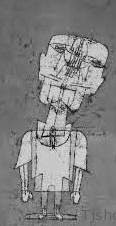Knightian uncertainty
I was thinking about a good example of Knightian uncertainty and this is my proposal: We cannot know what theorems a particular mathematician or a group of mathematicians will be able to prove.
As a concrete example, consider the collaborative effort to lower H from Zhang's 70 million; Currently, the best confirmed value for H is 60,726. But will H drop below 1000 by the end of this year?
Obviously we cannot know for sure (otherwise we would have a proof for H < 1000 already) and I think that any attempt to come up with a 'Bayesian probability' in this case would be inappropriate.
But this means that the state of our world by the end of this year is unknown. (If you wonder how to reconcile such a statement with physics, I recommend these links: 1, 2, 3, 4).
Btw it is possible that some Martian mathematicians, with far advanced math capabilities, would already know the answer to the above question, but in this case I have to assume that they have theorems in their advanced Martian mathematics which they cannot prove yet.
So the strong form of my example is this: In our universe there is at least one mathematician, who is unable to predict if she will be able to prove the theorem she is currently working on - and nobody else is able to predict it either, because she is the smartest/most advanced mathematician.
Therefore the future state of our universe is unknowable.
Subscribe to:
Posts (Atom)
